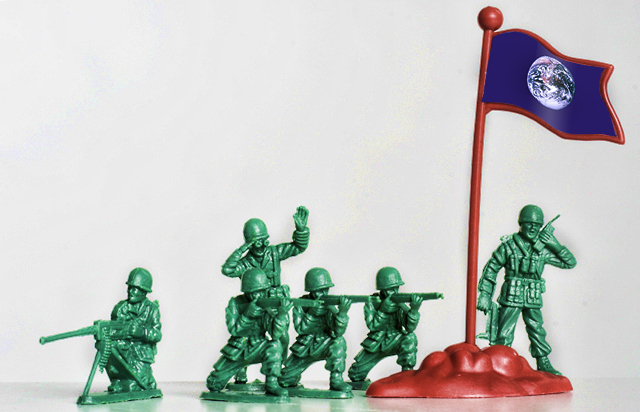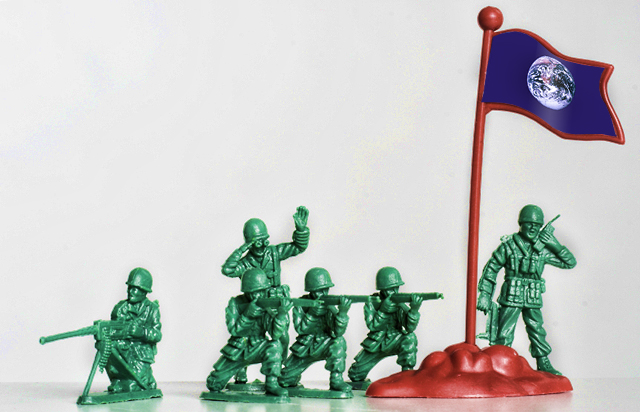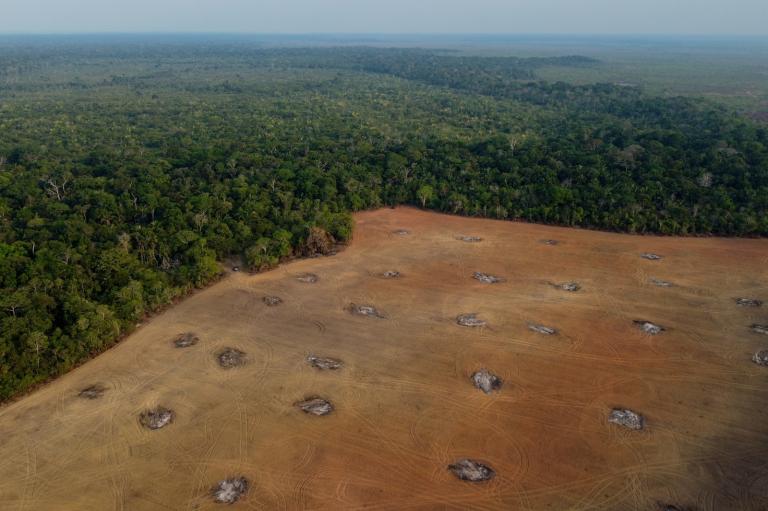 Photo illustration by Tom Twigg / Grist
Photo illustration by Tom Twigg / Grist
Old soldiers, as they say, never die — and at 97 the legendary Vietnamese Gen. Vo Nguyen Giap seems intent on proving the point.
But he does not seem to be that interested in fading away, either. For the man who drove out first France and then the United States is enthusiastically embracing a new battle — as an eco-warrior.
For a European child of the 1960s like me — for whom the Vietnam War was a youthful defining event — this is truly riveting news. It is like someone of my father’s generation discovering Germany’s Field Marshal Rommel campaigning to save the whale in the 1970s, or people of my son’s age coming across, say, Saddam Hussein running an animal sanctuary in forty years time.
Giap was just as feared in his day — and many readers could be forgiven for assuming him to have passed away years ago.
Be that as it may, the general’s emergence provides a dramatic personalization of one of the more surprising trends of the last few years — the greening of the military. Britain and the United States are in the vanguard of what we may one day come to call the “military-ecological complex.”
But before we get to that, spare a thought for the Chinese firm, Chinalco, that now finds itself in the sights of the man who routed the French Army in the decisive battle of Dien Bien Phu (55 years ago last week) and then led North Vietnamese forces against far superior American military between 1965 and 1974. The national Vietnamese communist government, which Giap did so much to make possible, calls Chinalco’s bauxite mining in the country’s beautiful Central Highlands “a major policy of the party and of the state.”
But the general will have none of it. He cites a report that concluded that the mining would cause “devastating, long-term ecological damage” and says: “We should not exploit the bauxite. The exploitation will cause serious consequences on the environment, society and national defense.”
It is, of course, defense considerations that have awakened military leaders in the West to the importance of green issues. Gen. Giap may be concerned about inviting investment from Vietnam’s old enemy, China. But top brass in Britain, the United States and many other countries are most worried about the potential for future conflict caused by resource scarcity, environmental refugees and — above all — global warming.
“Just a few years ago,” former British defense official Derek Twigg told a conference last September, “it would have been fanciful, to say the least, for a defense minister to be speaking about climate change, let alone stating categorically that it will have a crucial effect on the defense operations of Britain and its allies.
“Climate change will serve to amplify instability. Because of it, our troops will be asked to complete more challenging tasks, in more places, more often.” He added: “It is a long term danger that must be tackled head on.”
U.S. military leaders were even sooner to see the threat. “We will pay to reduce greenhouse gas emissions today, or we will pay the price in military terms later on,” said General Anthony Zinni, a former commander of American forces in the Middle East, at the launch two years ago of a report that concluded that global warming was a “threat multiplier”, creating breeding grounds for terrorism.
Another of the report’s authors, Admiral T. Joseph Lopez, former commander-in-chief of U.S. Naval Forces in Europe, added that the “rising ocean water levels, droughts, violent weather and ruined national economies” that would result from global warming “can provide the conditions that will extend the war on terror.”
Even more interestingly, the two countries’ armed forces are setting out to tackle their own gas-guzzling consumption of fossil fuels. Britain’s Ministry of Defence, responsible for 70 percent of all the Her Majesty’s Government’s carbon dioxide emissions, has so far cut them by ten percent this decade and has certified its planes to fly entirely on biofuels, probably made from algae, when they are available.
The Pentagon, which gave humanity the 68-ton, less-than-one-mile-to-the-gallon M1 Abrams tank — now aims to get a quarter of its energy from renewable sources by 2025. It is saving fuel by removing floor mats and redundant tools from its planes, and has saved 100,000 gallons of oil a day by insulating tents in Iraq and Afghanistan with a layer of hard foam.
General Giap, notoriously profligate with his men’s lives, might not have appreciated the Pentagon’s combat-zone energy-efficiency efforts, but the U.S. military reckons these steps prevent casualties, as every one per cent of fuel excuses 6,444 soldiers from traveling in fuel convoys, favored targets of insurgent forces.
And, the newly green military chiefs add, their multi-billion-dollar acquisition budgets may boost the development of green technologies, just as military spending once led to the development of jet engines, microchips, the Internet and the global positioning system.



